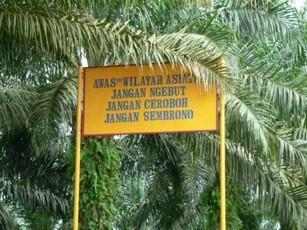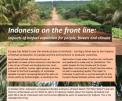- Home
- About
- Campaigns
- Regions
- Themes
- Agrofuels
- Climate justice
- Coastal communities and fisheries
- Disasters
- Economy & debt
- Energy
- Foreign investment
- Forests & forest fires
- Human rights
- Indigenous Peoples
- International Financial Institutions
- Land and food security
- Laws & regulations
- Mining, oil & gas
- Plantations
- Politics & democracy
- REDD
- Regional autonomy
- Transmigration
- Water and dams
- Women
- Publications
- Links
- Contact
Region
- Indonesia (53)
- Sumatra (13)
- Kalimantan (9)
- Sulawesi (1)
- Papua (3)
- Europe/UK (39)
- International (18)
Publication
- Newsletter articles (32)
- Special reports & briefings (2)
- Books (1)
- Photos and videos (4)
- Fact sheets and updates (7)
- Press releases & position papers (4)
- Letters (7)
Agrofuels and oil palm plantations








